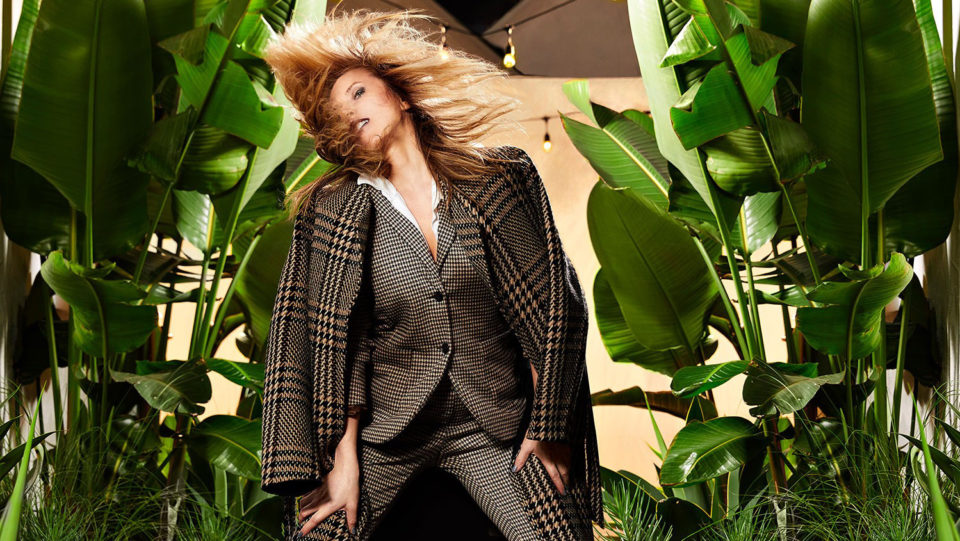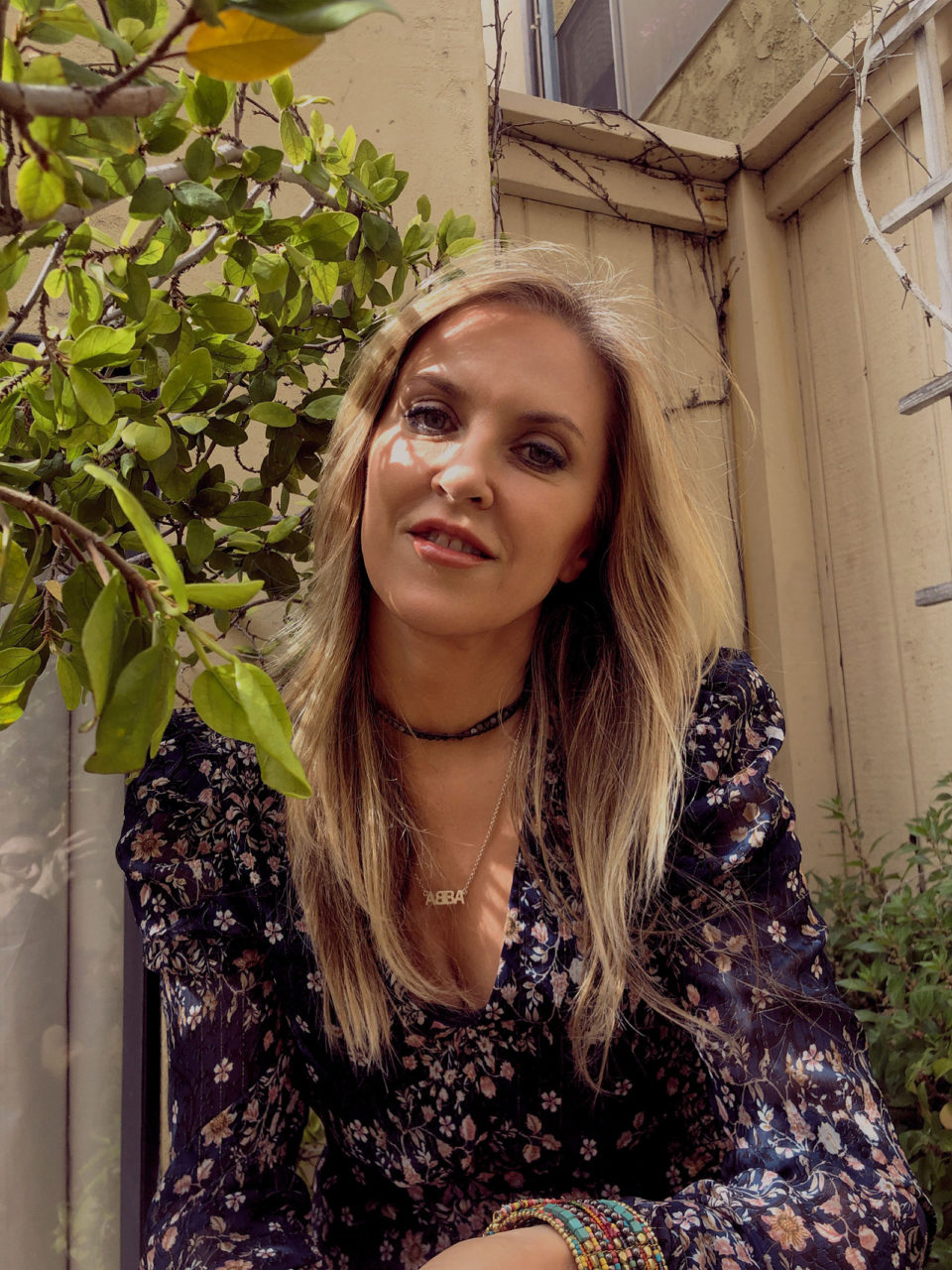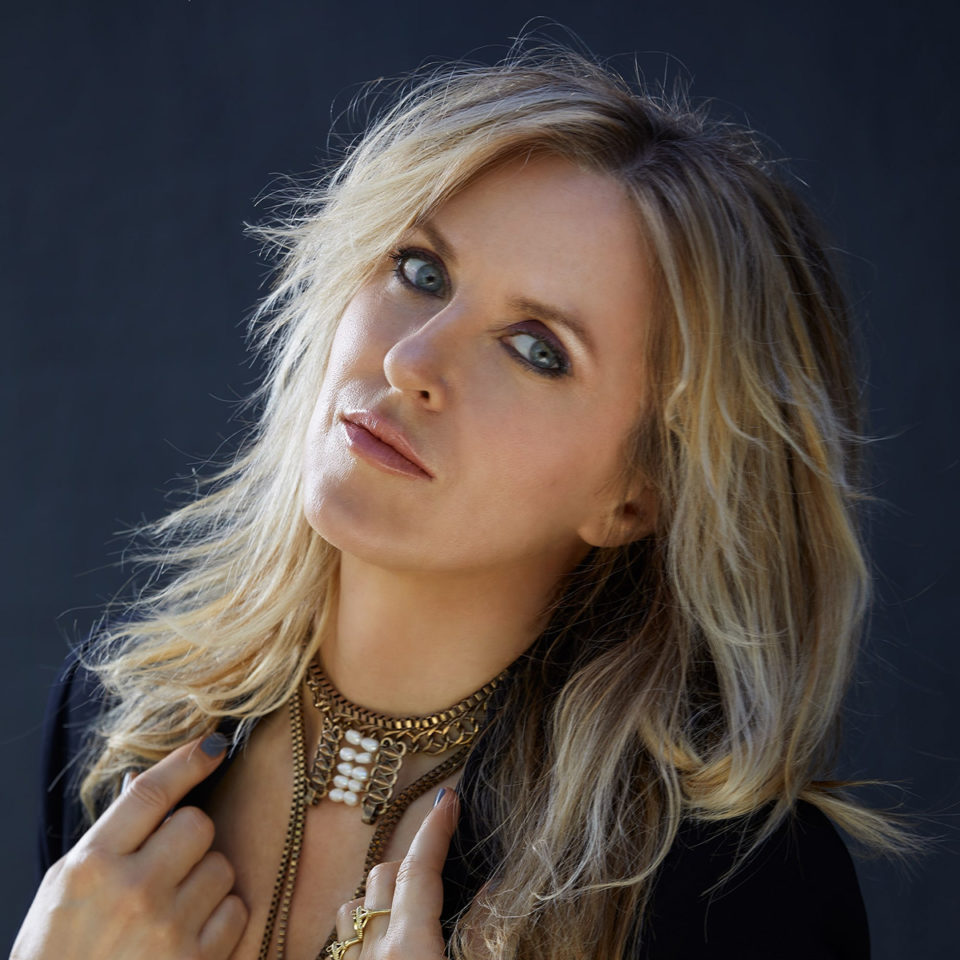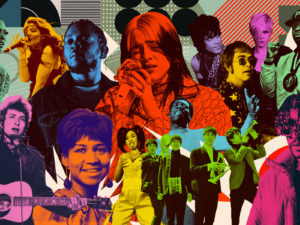Liz Phair has been defined as many things in her three-decade career — some accurate, others less so. They include: an indie-rock heroine, a potty-mouthed provocateur, a Midwestern mom, a pop sell-out. But as has always been the case, Phair knows herself best.
“I’m a creative monster,” she says with a laugh over Zoom from her home in Los Angeles today. “I think there are people who make music an identity, and people who gain an identity because of making music. I’m interested in music; I’m less interested in my identity. I’m more interested in doing than being.”
It’s been 10 years since her last album, but Phair has actually been doing quite a lot. She started a fruitful side career as a television composer on several shows. She celebrated the 25th anniversary of her seminal 1993 debut studio album, Exile in Guyville, with a box set including restored audio from her earliest musical work, the Girly Sound cassette tapes, released on her original label, indie trailblazer Matador. She wrote a remarkably clear-eyed memoir, Horror Stories, a showcase for the same mix of dry wit and frank musings that made her a star ‘90s singer-songwriter. (She’s currently at work on its companion, Fairy Tales). And around 2016, she started to take stock of her career — and what she wanted from it going forward.
“When all these icons of my youth passed away” — including David Bowie and Tom Petty — “I really reframed what it was I was going to do with music. I had to think: What do I want to leave behind? What if I only have five years? I don’t want to just let my career [wither] away,” says Phair, 54. Once her son went off to college, she realized she had “a passionate mandate. There were so many young women [in music], the landscape had changed drastically since I was working, and it was what I always dreamed of: What if there were tons of people like me in the world? I bet I’d be more engaged with my career. Lo and behold now that is the case, and I wanted to be part of it.”
On June 4, Phair will release Soberish, her first album since 2010’s Funstyle. If its songs sound like an amalgamation of her many past selves, well, that makes some sense: Soberish is a reunion for Phair with producer Brad Wood, who helmed Guyville, as well some or all of her ’90s classics Whip-Smart (1994) and whitechocolatespaceegg (1998). But the album is also filled with unexpected arrangements and sonic experiments that mark it as a definite creative step forward. To any reader of Horror Stories, Phair’s reflections on her many romantic misadventures, aging, and coming to terms with all that will feel like a natural progression; to any of her devoted fans, her conversational tone, guitar-driven hooks and still strong voice will feel like a familiar comfort in still-weird times.
In a wide-ranging conversation with Billboard, Phair spoke about her winding road back to making new music again, her journey through the music business, and her evolving relationship to the idea of who “Liz Phair” actually is.
You’re a great observer of people and seem to gain a lot from being out in the world among other humans. So I’m curious what this past year was like for you!
It was really funny — there’s no one answer. I did not find lack of socializing emotionally hard. My son lives with me. He’s 24, so there’s another adult in the house, and it actually helped us have a better relationship. I was talking to people all the time. It felt fully still busy.
But what I lost was the creative juice. Apparently — and I did not know this about myself — being out amongst people is where I get my art from. I know it sounds stupid to say, but I really didn’t know that. I always pictured if I had to go to jail, I’d write some great novel or something. But no, that’s the crazy fantasy of a suburban kid. Everything felt like wading through sludge — like those dreams where you just can’t move fast enough.
The Guyville 25th anniversary happened in 2018. Was the reflecting on your past that required productive for you as you went forward to make new music, or in any way stifling?
I think it would have bogged me down if I hadn’t waited as long. It’s weird to have your product be you. Sometimes I feel like I work for Liz Phair as much as anyone else who works for me does. There’s a different me that’s me-me. That happened a long time ago, and that has its benefits and detriments.
In a way, I think if you time it correctly, it can be like therapy, and be a wonderful tool to move your life along. So many people feel stuck in their lives at some point, including me – the transition can be daunting. Starting fresh again, you remember how long it took you to get confident in your field. To have a past that people guide you into re-embracing is a wonderful thing. On the flip side, it’s shoving your face, like a bad dog who peed on the living room floor, right in there.
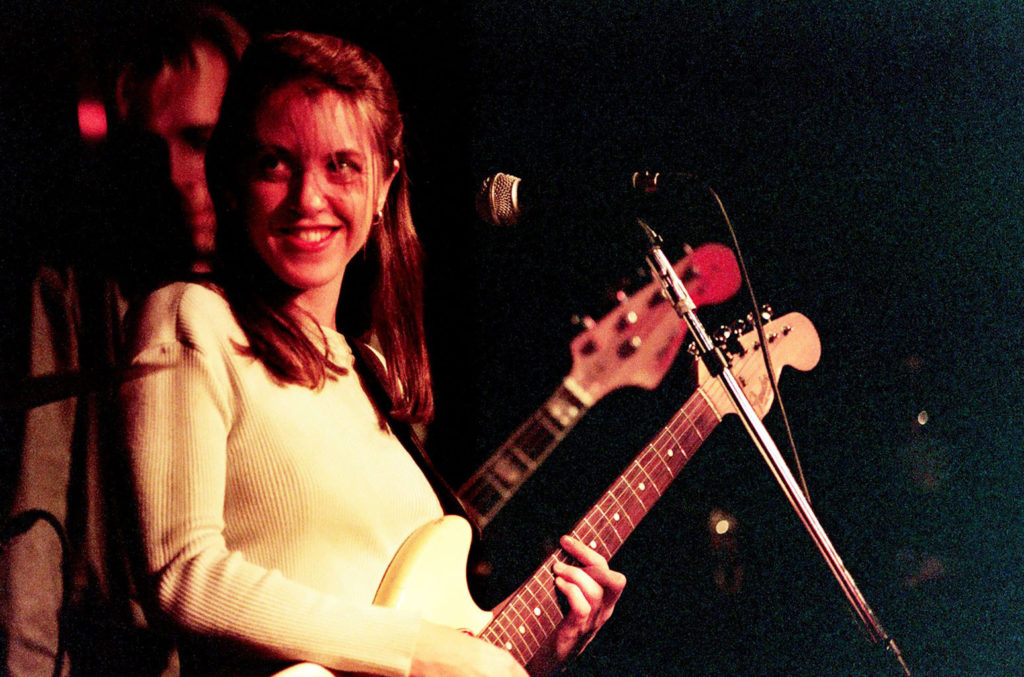
In the music video for the latest Soberish single, “Spanish Doors,” it feels like we’re seeing you seeing yourself through different lenses: the perfectly glam Liz, the one who looks a bit devilish, the filter-free one sitting on the beach actually playing with filters on her phone. Was that at all the thinking behind it?
Bulls-eye. Can you just come around with me and tell that to people wherever I go? [Laughs.] The video for me is about the different selves we play — and so often in my romantic life, whether I’m asked to do it or not, I put forward this idealized self, and when it falls through I’m left looking at that ambassador-self, envying her and also wondering if that’s the whole reason it fell through in the first place. I think on this album I’m encountering that a lot.
Did the experience of writing Horror Stories inform the songwriting here?
I think writing the book helped me open up so much more of myself — it allowed me to confess things I held inside that made me feel bad about myself. It did a lot for me artistically to enter the person I am, who most people may not recognize as “Liz Phair,” into the public, where I have more room to say what it’s like to be inside my brain.
When I went into the recording studio this time, I didn’t have to argue my point. I didn’t have to wrestle with Guyville. I felt freer, like I had less to prove and more room to [write about] how I see things, what I have learned. I love “Dosage is Everything” because I staged it in the same bar I wrote ”Polyester Bride,” where I’m kind of looking back at myself from an older woman’s perspective. It’s not just Henry giving me the wisdom, I‘m giving the wisdom, quoting him.
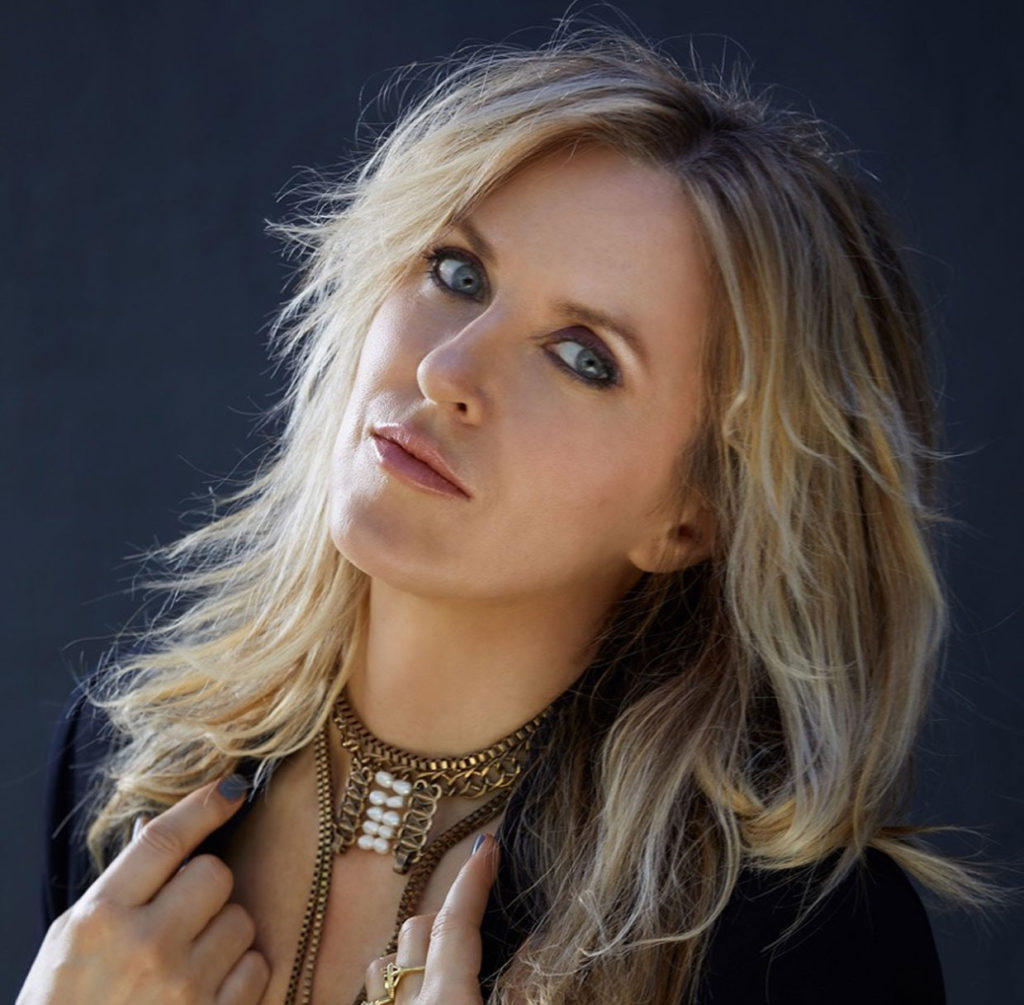
You’re working here with longtime collaborator, Brad Wood. Your last big album collaboration wasn’t quite so comfortable an experience: as you discuss in Horror Stories, before several women made allegations of emotional and sexual abuse against him, Ryan Adams was producing an album for you that won’t be released. Was is it hard to get back to a place where you could trust a close collaborator again?
Luckily, I’ve been in the music business a long time, and I’ve met many, many s–ts in the music business. So the Ryan episode was disappointing, but I hung in there longer than I should have waiting to see if he would come around to focusing. I wasn’t emotionally impacted by that nearly as much as the other women describing their experiences with him. He just didn’t penetrate my self-esteem like that.
I thought the record would be really great; everyone I told we were doing it got so excited, and it was so fruitful for me to write off his prompts. He understood my work, I understood his work, it was one of my favorite writing periods. That was so much fun, and all positive. But in the studio I couldn’t get him to focus, and he had kind of f–ked-up attitudes about certain things. It was a disappointment and it stalled me out for awhile.
But there was no trauma – and I’ve had trauma in this career. It was just a frustrating and annoying experience. A sadness of losing that cool batch of songs, but not defining.
Once you and Brad started working together, how did the project evolve?
I came in with a very strict mandate – he’s used to me coming in with already finished songs ready to go. I was very protective of my writing process; he’d be like, “Wanna work on that together?” and I’d be like “No!” [Laughs.] It took me longer.
I remember from Guyville, going into the studio for the first time, there was a lot of surprise and unexpectedness — a lot of “I have no idea what’s gonna happen,” or “I’m on my tippy-toes with my head just above water” — and I like that. I like pushing myself to go somewhere new. So, how do we recreate that feeling this time? We’re both pretty skilled at this point; how do we un-skill ourselves to get the beginner’s mind again, while still using the alphabet we established to write something new?
I did come in saying [that] I don’t want any traditional arrangements, but I also don’t want people to focus on that fact. I want it to be hooky enough that it just glides right past you. I want it to stand out not just from my catalog but from the entire field of what’s coming out right now. I want it to be identifiable five years from now, as “Oh, that’s Soberish.” So I did come in with super intense targets, I guess.
Your voice feels really prominent in a great way on the album — is that something you were especially tuned into?
I have toured so much now, so my voice is stronger. But one of the mistakes I make that Brad corrected on this album, is he likes it when I don’t try hard. He’d put a really expensive mic in my hand and I’d just be sitting there; he doesn’t have me go in a booth and get all formal. He thinks that’s a bad look and I tend to agree with him; I’ve tried it many times, and certain producers have pushed me to that, but he likes it off-the-cuff, and then he picks the best takes. There’s an immediacy there.
You became famous as this indie-rock queen, but you’ve always had a sense for pop melody. Do you think of yourself as an explicitly pop or rock artist at this point, or are they even separate things for you?
I was never the rock girl, and I was never the pop girl. I’m both and neither. The misnomer of Guyvillle is that that was who I was, and then I changed. If you listen to Girly Sound, I’m ripping off total pop melodies — sometimes I’m taking pop songs and rewriting them. I grew up listening to the radio, I like mainstream music as well as weird stuff. I’m an omnivore, and people just can’t f–kin’ stand it. It cannot be allowed to live! I get so mad when people say “pick your ten favorites,” because it’s just a lie.
I’m the product of myriad influences — including my parents taking me to symphony and musicals when I was growing up, and what my brother liked, and falling in love with this guy this summer to this song. Indie rock was a place I was living for awhile, just like I lived in New York for awhile or San Francisco for awhile. It was never me – it just was never not me either. It’s where I was, and who I was around, and if you threw me to some other part of the world I’d adapt and immerse myself and become part of that too.
You’ve had commercial success, but you seem to have always come at this career from more of an art-driven perspective. How involved in the business part of your career have you been?
I was always a business-enmeshed person; even with Matador, I was very much a partner in how we did that record, and always wanted to be before they even signed me. They love to tell the story of how I said on the phone — and this is just arrogant and repulsive beyond belief — “How would you like me to make you a million dollars?” I was much more sophisticated culturally than people assumed when I put Guyville out. So in one sense, I’m always enmeshed.
On the other side, when I have to get out there onstage — it’s scary, it’s vulnerable. Especially if you’re singing songs you wrote about your life, it’s a lot to confront a crowd night after night, as a small woman who’s not particularly performer-y. I’d go home and cry after the first rehearsal, like, where am I in this whole machine? When I go out and I’m doing hard things, I do want everyone to take care of the other stuff. When it comes to touring, I want to be in a safe bubble. Safety, authenticity and compensation are the three things I always want. If those are taken care of, I’m happy.
Over the years, you’ve moved between various labels, from Matador to Capitol and ATO and now the new Chrysalis. At this point, what do you feel a label needs to do for an artist?
The funny thing is, I have no real universal takeaway. Every label is as different as people. With each, there’s an initial rush of falling in love with each other — and then you get to the nitty gritty hard stuff, and it’s, “Well, you don’t do this,” “Well you don’t wanna do this.” Hopefully you figure out what they’re good at and what you’re good at, and try to use both of those things. I’ve really enjoyed working with Chrysalis. They’re so articulate for one thing; they’re British, so they felt posh. [Laughs]
They also have this incredible, rare thing: they attach a lot of value to the dignity of an artist. Integrity and commerce do not go together — but the fact that they keep showing they value that, you can’t put a price on that.
How, if at all, do you think about the future of your catalog?
Some [of my albums] I own, some I don’t; I chose to own this one but it’s not mine until later, with the licensing. But that doesn’t really mean anything — you can be more than adequately compensated even if you don’t own [all your music].
I think the music business really ought to reassess how it’s run. We have a bit of a no man’s land going on and I don’t think the way anything is working is perfect right now. I was writing about this last night, getting my thoughts down about what I think should change in the music business, and it’s a hard thing to solve — how streaming and social media determine everything. Those are new since my last record, and I’d give myself a passing grade, but I wouldn’t say I’m acing them.
I don’t know who’s winning — I guess the streaming platforms? But there should be more equitable dispersal of reward, and there should also be more consideration for the artist and what they need to thrive. I don’t know what the answer is, but I do believe we could find a better system that would allow everyone to do well.
This fall, you’ll be touring with Alanis Morissette, who you actually opened for back in 1999. What do you remember of that?
I remember being very eager to support someone I saw as a brilliant new artist, trying to do something impressive and great. People were trying to pit us against each other back then — trying to say she got all the success I should have had, trying to make me into something I wasn’t. And she probably saw this tension and wanted to reach out and support me in return. I opened for her for three or four dates at most, but she took me out to dinner one night, and I really remember that. I also remember hanging out with her and her band in the hotel, and just thinking how great these people were. Anytime I find someone good in the business, I try to make friends and keep that friendship.
When she asked me [to do this tour], it was at a difficult point for me, where I was trying to come back as an artist, and the industry powers that be are like, “You’ve already done your thing, we’re focusing on younger artists we can build and then reap the rewards for a long time.” I found it really hard, harder than I expected, to break back in, and for s–tty reasons — the same gross reasons the music industry was always gross. When she came in with this offer, I was like, “What a f–king supportive awesome gesture,” again. She’s great.
Jagged Little Pill is now a Broadway musical. Would you ever think of doing a Broadway show with your own music?
I’ve been approached multiple times about stage shows for Broadway – I think we’re up to five different people. Each time it sounds like a really good idea to me, and then I end up backing out at some point. It’s a precious property to me; it feels like the most core thing I have, and I want it to be done right. And I’m not even sure what right means.
For so long people have been like, “Did you really write a song-by-song response to [The Rolling Stones’] Exile on Main Street [with Exile in Guyville]?” and there’s so much misunderstanding about that. So I’ve lately turned my attention to, “Would that be a good thing to do — to tell the story in some sort of musical form?” It’s still a little unformed in my head, but I think that’s a legitimate path for me to start walking.
With you and Alanis on tour together again, I’m reminded of Lilith Fair, and how singular it still feels. Do you think it would be useful for women artists today — or is it not as necessary anymore?
It may be less needed to divide things on a gender line today — although I certainly enjoyed the hell out of it. It was one of the best-run tours I’ve ever had the privilege to be on, just so beautifully run at every level. Everyone was respectful, it was warm and fun, and there was lots of interaction with artists of all different types. It was kind of a small utopia. I wish it would come back for that reason, though I understand it maybe feels a little narrow and arbitrary now to say “all women.” But maybe not necessarily… I mean, I think there’s something sexy about men’s clubs in London, so why not a women’s festival? There’s no reason not to.
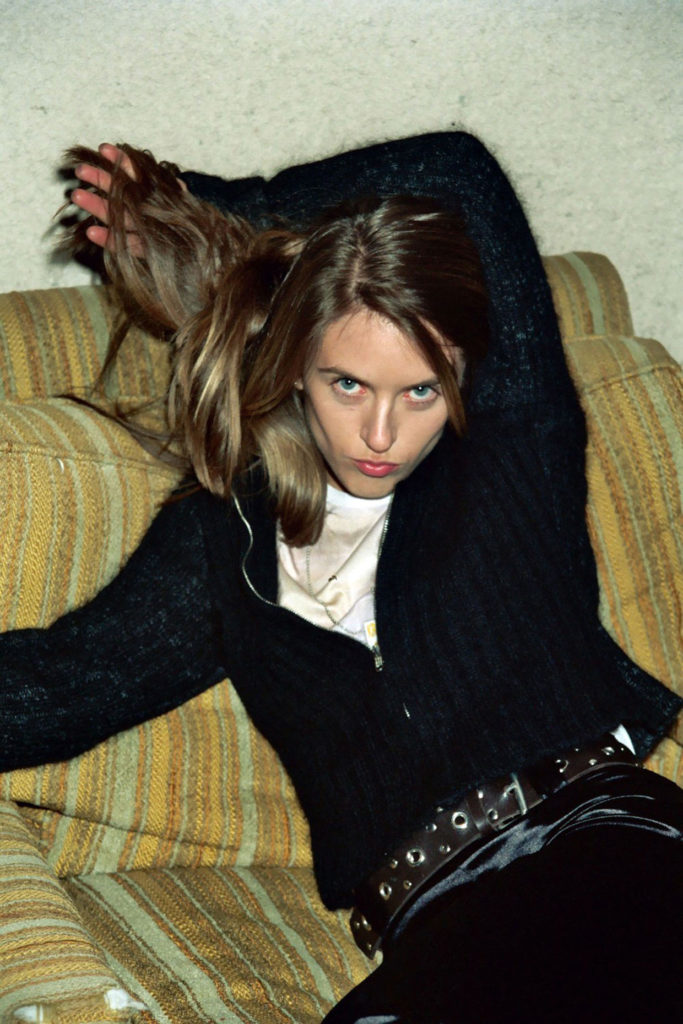
As the days of the pandemic hopefully wane, how are you feeling about going out on the road again?
I’m not ready to go into an indoor theater again yet…is anyone else feeling like this? Can we go to those outdoor Greek amphitheaters again? I strongly want them to require vaccinations or negative tests. That could be a very big stress point for me.
Your relationship to comfort is an interesting theme in your career. It seems like there’s a side of you that’s never been totally comfortable being the rock star, and a part that likes being comfortable and cared for. Where are you at on that spectrum right now?
It’s the most consistent thing I dream about — comfort in all of its meanings. And yet I cannot deny that my own actions have caused me to be less comfortable over and over again. I don’t know why that’s the perpetual state I live in. It’s so funny, I was just looking in the mirror telling myself, “I want to live slow and work fast.” I like to live a very thoughtful, at-my-own-emotional-pace life, but I want to work with real energy and intensity. That doesn’t always match up, but those are fundamental desires of mine. I want to live a very slow, Ferdinand the Bull existence — and then dive into work and go after it.
By Rebecca Milzoff
Billboard, July 19, 2021
Original Story ›
